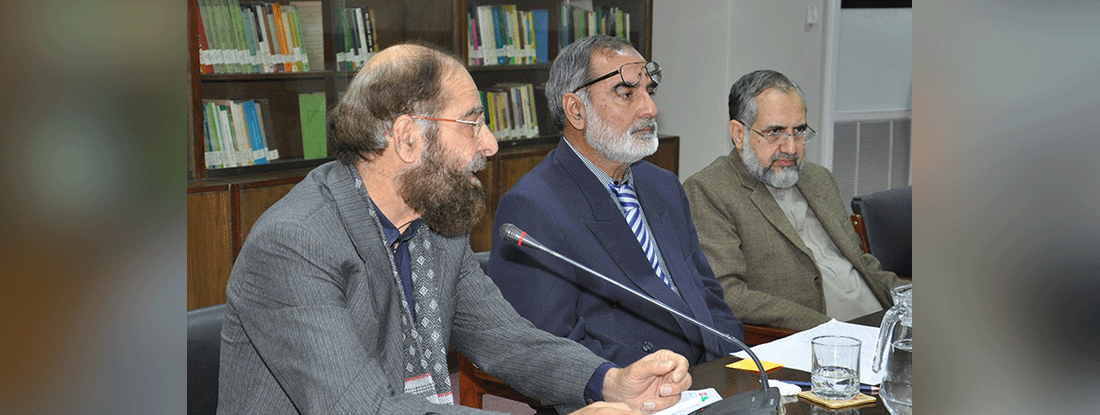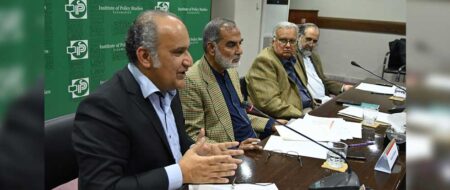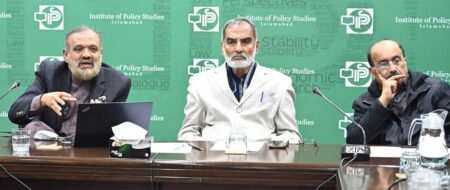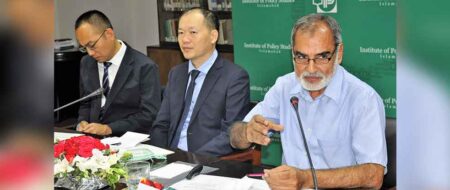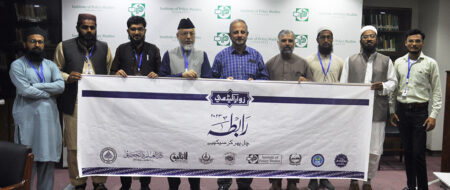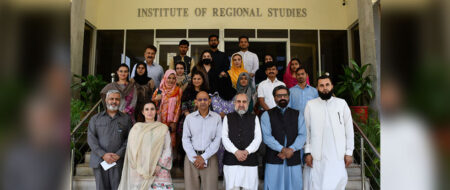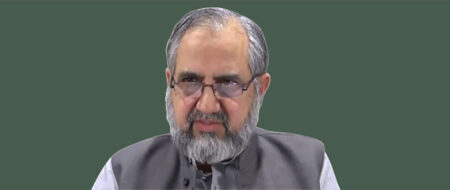‘US-Taliban Deal: Prospects of Peace in Afghanistan and Way Forward for Pakistan’
Ambiguities
in US-Taliban deal may disrupt peace process, Pakistan need to stay wary: warn
experts
The
recently concluded agreement between the US and Taliban contains various
ambiguities that could lead to the disruption of the Afghan peace process and
make the situation in the volatile region uncertain again, highlighted experts
at a roundtable held in Islamabad.
The
apprehensions were expressed at a session titled ‘US-Taliban Deal: Prospects of
Peace in Afghanistan and Way Forward for Pakistan’, which was held at Institute
of Policy Studies (IPS), Islamabad on March 5, 2020 . The deliberation was
chaired by Executive President IPS Khalid Rahman whereas the speakers included
Pakistan’s former ambassador to Afghanistan Syed Abrar Hussain, Brig (r) Said
Nazir, security analyst, Justice Dr Mohammad Al-Ghazali, Jumma Khan Sufi,
renowned author and scholar, Abdul Hadi Mulla Khal and Tahir Khan, senior
journalists and experts on Afghan affairs, and Dr Sadia Suleman, faculty member
of Quaid-i-Azam University, Islamabad.
All
the speakers were unanimous that there were enough ambiguities and
uncertainties in the agreement which any of the involved stakeholders could
exploit to further their own interests. The speakers pointed out the
discrepancies over exchange of prisoners, lack of a guarantor in signing the
deal, absence of clarity regarding the structure of future Afghan government,
ambiguity over power-sharing mechanisms within Afghan stakeholders, absence of
ownership and economic commitment on part of the US, and lack of involvement of
local leaderships and ethnic and other groups as some of the weak areas that
could hinder the progress in this regard.
Agreement
on various issues among the local tribes within Afghanistan was another
uncertainty pointed out by the experts, stating that it will be a big challenge
for the Taliban to bring all the local stakeholders on the same page given the
complexity of the region. Taliban, according to the speakers, had expertise in
fighting wars but bringing all the stakeholders within the country to an
agreement will be a real test of their leadership and political acumen.
The
speakers were appreciative of Pakistan’s role in getting the deal done, but
advised the country against being very vocal in taking credit as that will only
attract pressure in case the agreement fails to hold. Considering the changing
realities of the region and the unpredictable nature of both the Taliban and
the US, the speakers urged Pakistan to stay vigilant and be wary of any adverse
consequences should things fail to settle as per expectations.
The
development in general was however seen as a positive sign for Pakistan, as it
will not only help in improving the security paradigm of the region, but will
also enable Pakistan to focus on its Eastern border, and in providing better
moral support to the Kashmiris in their struggle against Indian occupation.
Improved connectivity and trade prospects, continuation of suspended projects
such as Turkmenistan-Afghanistan-Pakistan-India Pipeline, de-weaponization in
the region, and better control of drugs were pointed out as some other areas
that could be to the country’s advantage after stability in Afghanistan.
The
speakers saw the evolving regional situation as an opportunity for Pakistan to
benefit from, advising the government to make a comprehensive plan for all
possible outcomes of the peace deal, aimed at reconstruction of its relations
with Afghanistan and improved management of its borders.


